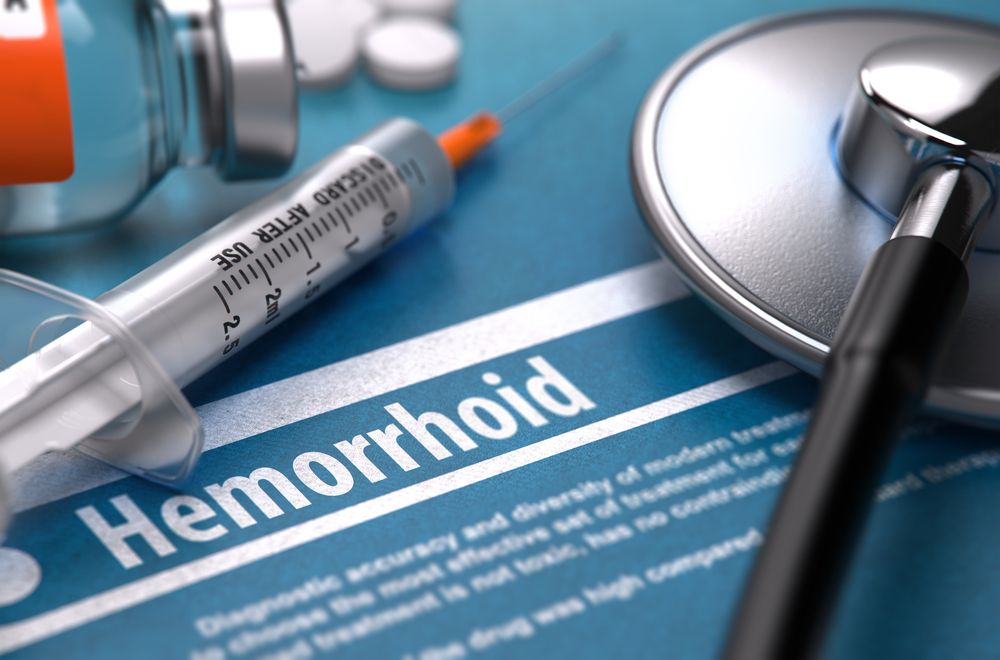Hemorrhoids
Prevention of Hemorrhoids
Treatment for Hemorrhoids
6/13/2024
What are the Different Types of Hemorrhoids Treatment?
What are the different types of hemorrhoids treatment?
- Home treatment
- Medication
- Minimally invasive treatment
- Surgery
Having hemorrhoids can be troublesome for anyone who has the misfortune to develop it. It can affect the daily lives of patients because it can be painful and irritating that sometimes even just sitting down becomes unbearable. The good news is that there are many ways to get rid of them. The best hemorrhoids treatment is one that wouldn’t need surgery and would help your body heal on its own.
There are several types of treatment for hemorrhoids: home treatment, medication, minimally invasive treatment, and surgery. Your option should be chosen depending on the severity of your condition and the resources that you have available. Let’s get into each of the four types of treatment below.

Home treatment
Hemorrhoids, especially the external ones, often go away on their own.5 That’s why home treatments are effective — because they help with symptoms and recovery of the body. Some of the home treatments you can do for hemorrhoids are:
- Sitz bath: Soaking the affected area in a sitz bath every day will help reduce the inflammation and soothe some pain. Simply prepare a small basin of warm water and sit for 10-20 minutes every day.2/3
- Eating high fiber food: Fiber is the nutrient that helps break down our food while we digest them. You can find it in cereals, whole-grain foods, nuts, and other types of food. By regularly eating them, your stool will become softer and easier to pass, lessening the strain on your rectal area.2/3
- Cold compress: Pressing a cold compress against the affected body part will numb the area and help reduce inflammation. Do this for a few minutes to maximize effectiveness.4
- Loose clothes: By wearing loose clothes, you lessen the irritation that you may experience from external hemorrhoids. It will also keep you comfortable as you recover from this condition.4

Medication
Choosing what kind of medication you need to fight against hemorrhoids is crucial when your symptoms are bad. Here are some medications you can take for hemorrhoids:
- Topical medication: You can find over-the-counter hemorrhoid creams in your local pharmacy that could help with your symptoms. Make sure it contains lidocaine or hydrocortisone. You can also use pads with witch hazel to bring some relief.2/3
- Pain relievers: Hemorrhoids can be painful. You can treat these symptoms with over-the-counter pain relievers such as acetaminophen, aspirin, or ibuprofen.2
- Micronized purified flavonoid fraction (MPFF): MPFF treatment has been proven effective against hemorrhoidal disease because of its venoactive properties.6 These drugs include Diosmin + Hesperidin (Daflon 1000) and its 500 mg counterpart.1

Minimally invasive treatment
Sometimes, medical procedures need to be done to treat hemorrhoids. These are typically performed on patients whose symptoms are worse than normal like persistent bleeding and pain. These procedures don’t need anesthesia and can be done in the doctor’s office. These procedures include:
- Rubber band ligation: This procedure is performed to treat bleeding or prolapsed internal hemorrhoids. The doctor will place a rubber band at the base of the hemorrhoid using a piece of special equipment. It will cut off the blood supply and should fall off within a week. It can be uncomfortable and sometimes cause bleeding, but it rarely becomes severe.2/3/4/5
- Sclerotherapy: For this procedure, the doctor will inject the hemorrhoid with a solution that will cause it to start scarring. The scarring would cause the hemorrhoid to shrink, and eventually disappear or fall off.4/5 It doesn’t hurt as much, but it’s less effective than rubber band ligation.2
- Coagulation: Coagulation can be done using infrared light, laser, or electricity. A device will be used to heat the hemorrhoid, causing it to form scar tissue and shrink. The same happens when an electric current passes through it. It is usually done to prolapsed internal hemorrhoids.3/4/5

Surgery
When the condition is severe enough, the doctor might opt to perform surgery. It is done when the hemorrhoids are large enough, prolapsed, or not responding to other medications. There are two types of operations for hemorrhoids:
- Hemorrhoidectomy: Perhaps the most effective treatment, hemorrhoidectomy is surgery to completely remove the hemorrhoids. The surgeon can choose any of a number of techniques, but the recovery will always take weeks and it can also be painful.2 Always follow the doctor’s instructions after the surgery.
- Hemorrhoid stapling: This method, also called stapled hemorrhoidopexy, will restrict the flow of blood to the hemorrhoid, similar to rubber band ligation. It is performed on internal hemorrhoids and sometimes on prolapsed hemorrhoids as well. It is less painful than hemorrhoidectomy and recovery time is shorter, but the chances of recurrence are high and rectal prolapse might occur.2
Key Takeaway
The different types of hemorrhoids treatment all exist to help you against the dreaded disease. Despite having many options, remember to always heed your doctor’s advice. Each case is unique and what worked for someone else might not work for you. In any case, home treatment and medication are good responses and should be done right away when you develop hemorrhoids.
If you need an effective over-the-counter medicine against hemorrhoids, try Diosmin + Hesperidin (Daflon 1000)! Learn more about this MPFF drug here.
REFERENCES
- https://daflon.ph/daflon-for-hemorrhoids
- https://www.mayoclinic.org/diseases-conditions/hemorrhoids/diagnosis-treatment/drc-20360280
- https://my.clevelandclinic.org/health/diseases/15120-hemorrhoids
- https://www.webmd.com/digestive-disorders/understanding-hemorrhoids-treatment-medref
- https://www.niddk.nih.gov/health-information/digestive-diseases/hemorrhoids/treatment
- https://www.ncbi.nlm.nih.gov/pmc/articles/PMC7467450/
2026